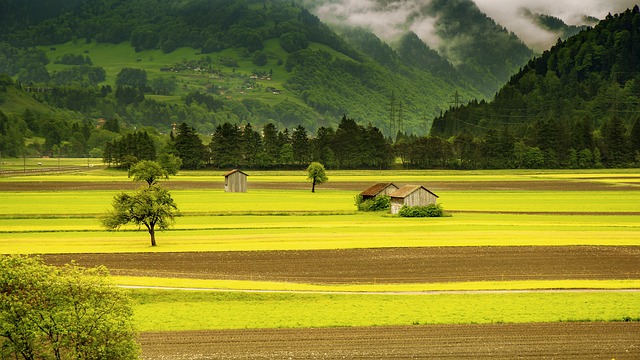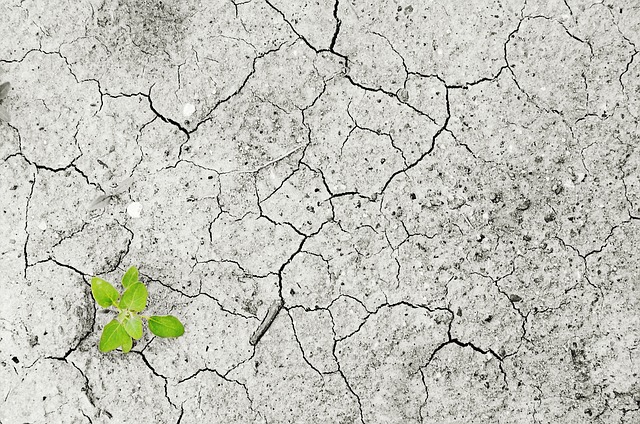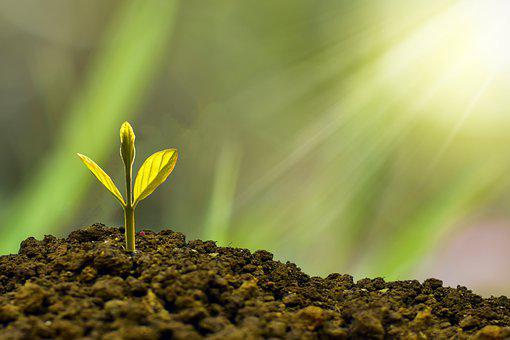What is Biodynamic Farming?
Biodynamic farming is an ethical approach to agriculture that has combined both science and spiritual values. First introduced and developed by Rudolf Steiner in 1924; it is the type of farming behind which lies the obscure philosophy of treating the entire farm as a living organism and it integrates all plants, animals and soil on the farm to create a balance and it requires the use of only the materials present or grown on the farm for all farming purposes and activities.
Contrary to organic farming, where farmers strive to achieve high quality produce without the use of artificial fertilizers; while biodynamic farming also doesn’t use artificial fertilizers, rather it involves methods like composting, green manure, mulching and other techniques that can be done on the farm itself using the by-products from livestock and crop residue etc.
For more information on this topic, check out What is Biodynamic Farming?- Methods and Advantages
Some techniques included in biodynamic farming include cover cropping, making natural pesticide sprays etc.
Importance of Bio-dynamic Farming:
1. Overtime, soil quality on cultivation lands deteriorate and farmers face the issues of nutrient deficiency, infertile soil etc. So for that purpose biodynamic farming is beneficial to the soil as use of cow dung as manure and natural composting prevents the soil from ever being deficient in soil and also prevents additional leaching of nutrients.
2. It is an economical method that reduces overall cost of farming and also causes less generation of waste which is extremely beneficial for the environment as there is minimal waste to dispose of since almost everything is used and reused on the farm itself. Such as leaves that are shed from trees are used for mulching and crop residue can be either used for composting or as haystack for animal feed.
3. It is resourceful and ethical and does not involve any exploitation or mismanagement of resources as farmers generally follow specific guidelines for running their farm.
Have a look at: What Is Agritech? – Importance and Methods of Agrotech
4. Crops grown in the soil are more resilient and pest resistant. They are healthier and are able to adapt to adverse climatic changes as they are grown in a purely integrated approach with the surrounding ecosystems and are better able to overcome diseases and withstand the various changes in climate without reliance on external fertilizers or support.
5. By integrating animal and plant species on the farm for the purposes of pest management, biodynamic farming not only provides a means of preserving habitat for those birds and animals, they also act as natural pesticide to kill those pests but it also ensures a healthier ecosystem since human needs are being fulfilled and natural cycles are in harmony.
Also Read: What is Agroecology? Importance and Impact on Environment
6. Microorganisms are able to thrive better as soil treated with compost consisting of medicinal herbs and previous crop residue, encourages the proliferation of microbes in soil which as a result renew and maintain the nutrients in soil.
7. The pollution of land and water due to artificial pesticides is reduced as there are no synthetic pesticides used. This results in water runoff containing no leached chemicals from the pesticide that is sprayed on the crop and as a result there is no harm to the aquatic ecosystem. Biodynamic farming preserves all natural ecosystems. For more information, read: Eutrophication – Causes, Effects, and Solutions.
8. Biodynamic Farming is important for the vegetation cover on hills and grazing lands. Animals are allowed to graze in rotations, which allows water retention in soil, increases soil permeability and allows better grasses and plants to grow deeper roots as the land is not being overgrazed.
9. Biodynamic farming utilizes dead animal parts to be used as ‘sheaths’ for activating the ingredients of manure or liquid fertilizer. This also fulfills the reduce, reuse and recycle aspect of sustainability.
As agriculture is the biggest industry in the world and majority of the people across the world especially in Pakistan rely on his sector as their main mode of livelihood, it is very crucial that such environmental friendly and ethical approaches to farming and crop cultivation are promoted and implemented. If all farmers in the world shift to biodynamic farming the impact of this on the natural ecosystems and biosphere would be unprecedented and would definitely help the Earth recover from the harmful impacts of commercial agriculture.
Also check out: Sustainable Agriculture Practices and their Advantages
We hope you liked this post! Please comment below if you have any suggestions, comments or feedback! We at #envpk love hearing from readers! Thanks




